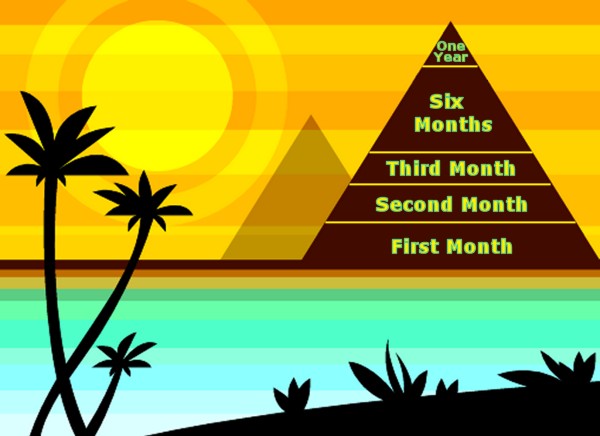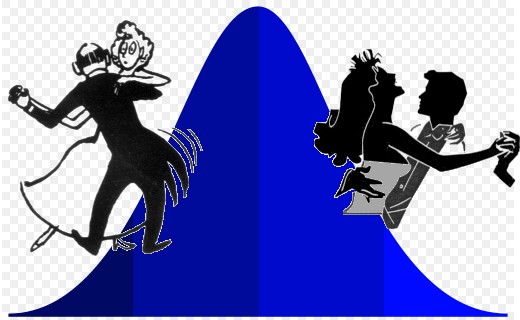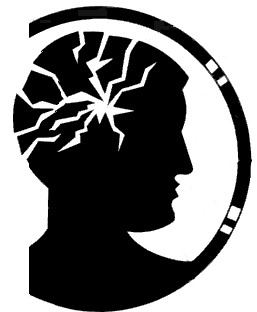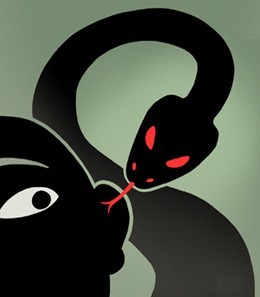Perseverance
Rick
Archer's Note: One night during the
late-night dancing on our 2012 Labor Day dance cruise,
I was joined by Gertrude Booysen,
the lady who was our Carnival Coordinator. I noticed
Gertrude was intently watching how the people from our dance group
interacted.
Gertrude, a native of South Africa, seemed
fascinated. First she pointed out how the men politely asked the ladies
to dance and how the ladies seemed so pleased to be
asked. Then she noticed the people who weren't
dancing always seemed to be engaged in conversation
with one another.
Gertrude asked me why our dancers were such
a nice group of people. Why were they so
friendly?
I laughed at her question.
I told Gertrude I completely agreed
with her. She was right. Dancers are definitely a cut above the norm when it
comes to being considerate people. Then I gave
the question some thought. I told Gertrude that
most social dancers are people who possess a great
deal of 'perseverance'.
Gertrude asked, "So what does
perseverance have to do with being friendly?"
I explained that most good social dancers are
'made', not 'born'. That includes me. In
my case, nothing came easily. I struggled
mightily every step of the way.
Later when I
became a dance teacher, I realized that I wasn't
alone. Lots of
people, especially men, have to struggle to get it.
Very few people I would call 'good
dancers' ever have an immediate grasp of the
mechanics. For the vast majority, the only way
they ever made progress was to try and stumble, then
try again... then try try again some more.
Slowly but surely the moves would eventually sink in.
Therefore, in my opinion, the
one trait that most successful social dancers seem
to share above all is 'perseverance'.
Gertrude replied, "But you
still haven't explained why perseverance leads to
friendship."
|
 |
And this is what I told
her...
Many beginning dancers are surprised to discover that most
good dancers are not 'born dancers'. Oh, sure, there
are a few people with a gift, but most good dancers will
readily admit they learned to dance the hard way - one step
at a time.
While most good dancers are the product of painstaking trial
and error spread over eons, there actually are a few 'born dancers'.
Born dancers may be more rare than Yeti sightings in the Himalayas,
but yes, they do exist. There really is the occasional
person who picks things up very quickly. In
32 years of running a dance studio, I saw a student with
this kind of gift come through about once a year.
Let me clarify. For one thing, not
every 'born dancer' is interested in social dancing.
Just because someone has dancing ability doesn't mean they
will be interested in 'social dancing'. Many people
with a gift for dancing don't enjoy dancing
with someone who doesn't have "the gift". For example,
whenever I guest teach at HSPVA (Houston's answer to
Fame), I have noticed the whiz kid dancers are not particularly
interested in partner dancing. They are amused for a
while, but I imagine those kids usually stick to 'Freestyle'
when they become adults.
That said, occasionally someone very special has crossed my
path.
I
once had a student and his future wife who signed up for my
"Two Left Feet" class. This class was advertised as
the class to take for the world's slowest learners.
This young man and his girlfriend wanted to learn to dance,
but didn't know where to start. So they landed in "Two
Left Feet". Both of them not only caught on quickly,
they were drawn to the challenge. In their case, it
took 'perseverance' to tolerate the slow pace of the class.
After that class ended, they got into a tougher class and
moved right up the ladder. About two and a half years
later, this young man became a world dance champion in
Country-Western dancing.
True story! But also a once in a lifetime story.
Students who are gifted dancers AND interested in partner
dancing are few and far between. Take my word for it -
in
social dancing, "gifted dancers" are a rarity.
Normal Students
In
addition to the rare students with a gift, there are "Fast
Learners". They show up more often, but still not as
often as you might guess. I would estimate there is
one fast learner in every 50 students. For
every fast learner, the next 50 people will struggle just
like everyone else. These are your basic "normal
students".
Pretend
it is January, always our biggest month of the year.
It was not unusual for 100 new students to show up
for classes.
How many
of these people would still be taking classes in
December? I would say 10. It would
vary, but 10 is close.
Of those
10, how many were fast learners? 1 or 2.
The
other 8 had only one thing going for them:
perseverance. They stayed with it, they practiced,
and they got the hang of it.
What
about the other 90 people?
40 of
them quickly decided dancing wasn't for them and
didn't take a second class. They were "one and
done".
The
remaining 50 took one to five more classes before moving
on to something else. A lot of those 50 would
be back to take more classes a year or so
later. I called these students "occasional
dancers." They liked dancing, but weren't
'hooked on it'. They never stayed with it long
enough to develop any real expertise. They
learned enough to go dancing in the clubs and have
fun. That was fine with them and fine with me.
|
 |
The Good Dancers
One
solid year of dance classes and practice will produce a
skilled, polished dancer. When you see a good dancer, you are usually
looking at someone who has taken classes for at least a year,
probably more.
People who stick with social dance for more than a year are
clearly a select group. Out of their original group,
they are one in ten, maybe even one in twenty.
As
I have pointed out, these people are not necessarily the ones with
any special ability. They usually turn out to be
normal
people who simply "stuck with it". They had
no special ability for dancing, but they were interested
enough to give it a try and decided to continue. Even
though dancing did not come to them easily, they discovered
that if they practiced and stayed
with it, the moves began to click. After a year,
they looked back and smiled when they realized just how far
they had come. Now they are hooked
on dancing. Social dance has become a skill they enjoy
and are determined to master even more. So, in a sense, at this
point they will probably be 'dancers' for the rest of their
life.
When we go on our cruises, many passengers line
the edge of the floor to watch our group dance. As
they ooh and aah at how lovely and graceful the dancers are,
these spectators have no idea that they are watching people
who are the Poster boys and girls for Perseverance.
All of these people have at least one and more often 3, 5, even 10 years of dancing
under their belt.
That goes for me too. In
my own case, I took at least one group dance lesson,
sometimes two, every week for three solid years in the
beginning. Then when I became an instructor, I got
even more serious. I switched to private lessons twice a
week for six more years!
Let
me add that when I retired 25 years later, I used my new-found
free time to start taking private lessons again. There
really is no end to learning if you enjoy improving at
dance.
Staying the Course
Does anyone learn quickly? Yes, but not very often.
Rapid progress in dance is unusual. If someone has a
gift and goes straight to private lessons, they can improve
rapidly. But who has that kind of money?
And where does the incentive come from to accelerate the
learning curve like that?
"Dancing with the Stars" is an aberration of sorts.
Here you have celebrities paired up with exceptional
instructors who drill them non-stop for weeks, months at a
time in preparation to appear on the show. The
celebrities go through a type of boot camp with hours of
daily training so they can
acquire their skills quickly. It is no surprise that
athletes often do well on the show because their sports
careers have prepared them for this kind of rigorous
physical regimen.
For normal people, learning to social dance is not
an overnight project. Dancing is a skill that rarely pays
off quickly. More often than not, 'slow and steady' is
the rule. The people who stay with dancing
understand that the payoff is somewhere in the future... two
months, four months down the road. In the meantime,
they satisfy themselves with steady progress and keep their
goals reasonable.
'Perseverance' just happens to be a trait that separates
successful people from average people in more ways than just
dance. People who stick with it even when the results
are slow to materialize are those who are successful in
school, successful in sports, successful in career, and many
other walks in life. People who innately strive to
hang in there even when things don't come easily develop
both humility and confidence. They are humble because
they know they have to work hard for everything they get in
life. They are confident because they have proven to
themselves time and again that although their natural
ability may be limited, they can do anything they put their
mind to. It's just a matter of time.
Most social dancers are cut out of this cloth. They
may not have the natural ability to be a performer or become
instructors, but through discipline they can at least
become competent dancers. Dancing is a wonderful
skill, but let's face facts - no one needs to learn to dance
just like no one needs to learn to do Crossword or learn to
ski. Lacking a sense of urgency, like most hobbies,
people can take it or leave it. To become good at
dancing, someone has to say, "I am
going to stay with this dancing until I get it." People who
succeed at learning to dance are the kind of people who make
a commitment and stick to it even when learning the moves isn't as easy as
they expected.
If
you see someone dance well, you are only seeing the tip of the
iceberg. In addition to being good at dancing, this
person is probably good at a lot of things because that is
who he or she is. 'Slow and steady' is part of their natural
make-up. Their finely-tuned sense of dedication is
what makes them special. I might add that 'special
people' usually turn out to be 'nice people' as well.
Coincidence? I don't think so. I think as people
accomplish things in life, they develop a maturity to go
along with their sense of achievement. Social dancing
in particular is a "social" skill. By its
very nature, social dance attracts people who like people to
begin with. Not surprisingly,
the people who are attracted to social dancing typically
bring a superior set of social skills along with them.
The best social dancers quickly
learn to be considerate about their partner. And that
sense of courtesy and concern affects the way dance partners
treat each other off the dance floor as well. They
become teammates and friends. As those individual
friendships are extended to other dancers, a network of
friendships are formed. As that network grows, a
community is born.
What Gretchen was seeing aboard the ship was an entire
community of friends with bonds forged by dancing together.
And who are the best social dancers? The ones who
persevered...
|
Learning to Dance
I think my story is important to
all other struggling dancers.
I can't imagine any story more descriptive of the need for 'perseverance'
than my own.
|
I had to overcome some serious
handicaps in order to become a good dancer. In my case, dancing came very slowly.
My rate of progress is best described as 'glacial'.
I would say I have met perhaps five other men in my life who
were actually worse than I was when they started.
Considering I taught something like 100,000 people to dance
over my thirty year career, I suppose that would put me at the
furthest end of the proverbial Bell Curve. For every
"gifted dancer", there has to be someone on the other end,
right? That would be me.
Speaking of yetis, you
might say I started with the same dancing ability as your
average Abominable Snowman. You
think I exaggerate? Oh boy, trust me, I am not exaggerating.
Since we already know that I eventually made it to the other
side of the Bell Curve to become a pretty good
dancer, some people might be curious to learn how I did it.
|
 |
The Person Who Can't Dance
Occasionally someone will tell me it is impossible for them
to learn to dance. I smile and tell them that is
nonsense. Assuming they have two working legs and the
brain capacity to read the morning paper, they can learn to
dance if they want to. Now I can accept that someone
doesn't "care" enough to learn, but there is no such thing
as a waking walking person who can't learn to dance.
And
why am I so certain? Because I started out as the
worst dancer of all time and somehow became good enough to
teach 100,000 people to dance. How are they going to
refute that?
The
story of how I learned to dance is quite extreme. My experience proves that if someone sets their mind
to it, ANYONE can learn to dance. I say anyone who
claims he or she can't learn to dance has never tried or didn't stay with it.
So
why was I so handicapped? You know what, that's an
interesting question.
On
the surface, you would assume I had some advantages.
Not only was I able to walk, I was a good athlete.
Basketball, my favorite sport, required good footwork, so
obviously I wasn't crippled in any way. I could ski,
so I must have had good balance as well.
I
was also smart enough to go college with a degree to prove
it. So if I could walk and read the morning paper,
what was my problem?
 |
For starters, I may have been
smart, but my intelligence somehow worked against
me.
Carl Jung once explained that
different people have different approaches to
learning. Some people can see dance steps and
immediately copy them without a thought. They
can just "mimic" the motion.
Not so for some highly
analytical people. In my case, back when I was
learning, I would see the step, let my mind process
it, then my mind would explain to my feet what to
do. My mind would carefully watch my feet move
to make sure the feet followed the commands
properly. In a sense, I was talking to my feet
the entire time. Left foot, go there.
Right foot, go there. How absurd is that?
In my first dance class, I was
initially unable to do step-together-step, the
world's easiest dance step. I was so nervous
that I did it SLOWLY one step at a time. When
my feet came together, I stared down at my feet and
realized I wasn't sure which foot had moved last.
I had to start over several times until I got the
hang of it. Not once did my brain give my feet
permission to move on their own.
My problem was the same thing
as hitting a golf ball. You can't "think"
about swinging a club. The act of thinking
screws it up. You have to turn the brain off!
You can't think about shooting a free throw.
Same problem. That sort of acute
self-consciousness is a killer. Why do so many
people miss free throws in the final minutes of a
basketball game? Because they are "thinking
about it". And what is the phrase for an
athlete who can't miss? They are
"unconscious".
Dancing requires fluid
physical motion that should not be under the mind's
active control. But if that is the way you are
wired, then you have no choice but to learn certain
skills like dancing the hard way. I did not
have a choice. Thinking about my steps was a curse I
had to deal with.
|
I
can't say that I truly understand the problem. After
all, I learned to walk, didn't I? Plus I learned to
ski and I learned to play basketball without any
interference from my brain. I did it the old-fashioned
way - I practiced. And yes, my brain was involved.
I thought about different ways to shoot the basketball.
But I was able to turn my brain off when the game started
and just play.
Not
so with dancing. I was constantly plagued by an acute
self-consciousness. I had to think about every stupid
body motion or step I took. Nothing came naturally.
Progress was agonizingly slow.
Not
all intelligent, analytical people have this problem.
For example, my best friend Mike Fagan is a computer genius
as well a former dance champion. I am smart enough to
play bridge with Mike, but when it comes to dance moves,
Mike picks patterns up at a rate three times faster than me.
I should know - I taught him to dance. I cringed at
how fast he picked up patterns that had taken me forever to
learn. Why was he able to learn so much faster than I
did?
I
cannot explain the reasons for the difference in our
learning abilities, but it might be a very interesting
psychological study. When it comes to dance, I believe
I have some sort of "learning disability". Call it
"dance dyslexia" if you wish. I simply cannot pick up
new dance moves as fast as most people. I know the
only solution is to stop criticizing myself and to drill the
move until it sinks in. I may be a slow learner, but
persistent practice will eventually lick the problem.
Once I have the move in muscle memory, I am fine.
Nor
am I alone with this problem. During the course of my
teaching career, I have seen lots of very smart people who
have the same problem as mine although maybe not to the same
degree. I came to the conclusion that certain highly
analytical people - people just like me - require up to 3
times more explanation than non-analytical people. The
fact remains that some highly analytical people cannot seem
to shut their mind off. Sometimes nothing can help an
analytical person overcome the cruelty of their own mind
that is unable to set the body free.
There are three solutions to the problem. You must
have a sense of humor. You have to accept you have a
problem and make fun of it. I mean, for heaven's
sakes, learning to dance isn't exactly life and death.
So roll your eyes at the problem and laugh. For
example, I always tell overly-bright people that this
condition is God's way of keeping dance studios in business.
Not only are these people too damn bright to learn to dance
on their own, they are so smart they make enough money to
feed a starving dance teacher.
If
they laugh, I know they have a chance. It helps them
loosen up. If they frown, they are doomed. They
will get frustrated and quit.
The
second solution is to practice. A person cannot stand
there and watch. They have to get their feet moving.
They have to repeat a move over and over again. At
some point, the mind will let go and set the feet free.
The Country-Western dance known as the Polka is the perfect
example. Step-close-step. That doesn't sound
hard, does it? In any class, half the people get
the basic footwork on the first try. The other half is
going to have to work for it. Half of those people
will get it after three or four repetitions.
Now
we are down to one-quarter of the class. Sure enough,
these turn out to be the "analytical" people. If they
repeat the pattern enough times, at some point it will
click... but that might require 10 reps, 15 reps, or more.
Who knows?
The
first question is do they have the will power to
force themselves to practice knowing the results may not be
pretty at first. The second question is whether they
will have the perseverance and patience to put in
that kind of time and effort. The third question is
whether their self-esteem is high enough to tolerate the
rest of the class staring at them like they are stupid or
something.
Finally, they need to find an instructor like me. Why
do dance classes have an overabundance of analytical people?
Because less-analytical people don't need classes.
They can go to a club and pick it up by watching. Or
they can dance with someone who will help them get the feel
of it. Not analytical people. They have to have
the steps explained to them. That's the way they are.
Oddly enough, my curse is now a strength of sorts.
Most dance instructors are the ones who have "the Gift".
But that doesn't necessarily mean they can relate to the
people who think too much. I am one of the few dance
instructors who not only understands the problem, but can
explain things in a way that highly-analytical people can
relate to.
Some instructors might say, "Just watch me and do what I
do." That will work just fine for two-thirds of the
class. But that doesn't work for an analytical person.
They need each step laid out in front of them in a logical
progression. Some students love my style of teaching
while other students prefer other instructors. I don't
have a problem with that. As I said, different people
learn different ways. I appeal to students who are
very analytical. I know how they think and I speak
their language. I am one of them. Thanks to me,
people who think too much may actually have a chance after
all. Call it "special ed for dancers".
 |
The Failed Therapist
Some
people succeed; some fail. In 1973, I began
graduate work in the Dept of Clinical Psychology at
Colorado State University. Thanks in large
part to my anger problem and thin skin, I was soon
at odds with the powerful head of the department.
He was the wrong person to butt heads with. At
the end of the year, I was sent packing.
My
grades were top-notch. It was my 'personality'
they found lacking. I was told I had too
aggressive a personality to become a healer of the
soul. I had failed.
At the
time, I was completely devastated. This was my
chosen profession. There was no "Plan B".
I hit the abyss. For the entire month of June
1974, I could barely move.
A kind
family loaned me their living room couch and an
endless supply of peanut butter. I laid on my back
for a month feeling sorry myself. I was in so
much despair.
|
One day for reasons I don't understand, my life
force kicked back in. Like the "Terminator", a
light flickered on inside of me. I got up off
my couch and in rapid succession found a job as a
social worker, then found an apartment. I was
on my own again but with no direction.
I may
have had a job, but I was what you would call a "walking wounded". I was psychologically intact
enough to do my job and pay bills, but inside I was
floundering. Taking stock, my worst problem
was my loneliness. Unfortunately, thanks in
large part to my failure in graduate school, my
self-esteem had hit rock bottom.
I was
scared to death to approach any woman I didn't know.
It wasn't just a mild case of nerves. I
literally trembled at the thought of approaching a
woman and trying to strike up a conversation.
My fear was so intense, it was actually a "social
phobia".
By
chance, I ran across a paperback that said one of
the easiest ways to meet women was to learn to
dance.
In certain situations there is no easier way of meeting a
girl than asking her to dance. There
is no faster way known to man to get a strange woman into your
arms than dance.
As I
read this, I felt a little flicker of hope.
Maybe if I could learn to dance, I could overcome my
fear of approaching women. One week later, I
started my first dance class.
|
 |
The Phobia
Back in August 1974
when I took my first dance lesson, I
was an angry, bitter young man. Those were my "Rick
against the world" days. My failure in Graduate
School had been a crushing blow, but while I was in
school I received yet a second crippling blow.
|
 |
I was badly burned by a
two-timing girlfriend named Jan. Her deceit was so effective
that I was completely blind-sided when I discovered
the truth. I already knew I was in deep
trouble in my program and now I learned that the
woman who said she loved me was seeing her old
boyfriend on the side.
I was crushed at the time and
remained in quite a bit of pain for half a year.
Even when the pain finally subsided, I felt terrified of
being fooled like that again. I was obsessed with not
letting a woman trick me like that again. My
anger towards women was intense. My whole
world was "paint it black".
At
the time I also knew I was in trouble in my Psychology program.
My professor's criticism eroded most of
my confidence. My problems with my two-timing
girlfriend eroded the rest. From that point on, I was
reeling. Every day of my life for the remainder of the
school year was a struggle to keep going.
What woman would ever be
attracted to me? I was a failure in every way
I could think of. I might get a smile from a
pretty girl, but I would recoil and shrink back into
the shadows. I had become afraid of women in
the same way some people are afraid of snakes. I
had my guard up all the time.
|
My
year at Colorado State was the origin of my
"phobia". There was even a clinical name for
what I had. 'Social phobia' is the debilitating
fear of being
negatively evaluated in social situations.
When I first saw that label, I shuddered. That was
me. Unfortunately, just because I knew the name of my
condition didn't mean I could get rid of it.
My
phobia was real and it had power over me.
When I started my dance project, that phobia carried over into my dancing.
Once I realized how mediocre I was at dancing, I was so
ashamed of myself. Failure at Grad School, failure
with women, failure at dancing. What's next?
I was so clumsy in my dance class that I feared having a woman
laugh at me while I danced. As silly as it must seem
to a reader, you have to accept at face value that I had no
self-confidence left. My self-esteem towards women was so low that I
believed I could not tolerate any sort of embarrassment. I
felt so unattractive to begin with that having a woman stare
at me with pity or a sneer was a risk I didn't want to take.
I knew I was a slow learner and I knew I was awkward.
Just the thought of asking a woman to dance and have her
laugh at me made me cringe. What a sissy! But
true nevertheless.
I
was so beaten down at that point my pride would not accept
this kind of rejection. As a result, I refused to
practice my dancing anywhere but in a dance class.
That lack of practice slowed my progress down considerably.
Of course this is ridiculous.
Who cares if a woman snickers? But that is the
nature of phobias. Little children once bitten
are terrified by even the most gentle of dogs.
No matter how harmless the wiggly little garden snake, some
people still scream bloody murder. Anyone with
a near-drowning experience is leery of pools shallow
enough to wade in.
It may be irrational, but
these fears have power nonetheless. If you don't believe
me, trying calming a person down who has a fear of
flying after the plane has just hit a bumpy stretch.
Everyone is a prisoner to their fears.
They say that progress is
often measured by two steps forward and one step
back. In the case of my fear of women, my life
definitely took one step back...
or maybe I should say closer to a mile backwards.
|
 |
The Road Back
So
how do you conquer a Phobia all by yourself? It isn't easy, especially
considering I had a learning disorder on top of my
insecurity.
I turned to dance as a way to
try to get my confidence back. I made an odd pact with
myself. To me, learning to
dance meant finding the nerve to approach women again. I told myself I wasn't going to date again until I first
learned to dance. Learning to dance was my way of
making myself feel attractive again. So
you might say I had more motivation than the average guy.
The flaw in this strategy was
the terrible discovery that I could not dance a lick!! I
never realized how hard
it would be for me to learn to dance when I conceived my
plan. Now what?
So
why didn't I quit right on the spot? After all, that's
what most people do when they find dancing doesn't come
easy.
Despite my gloom and doom, I had two pieces of knowledge to
sustain me. Thanks to a strong sense of
self-discipline, I had consistently made good grades the
old-fashioned way - I studied hard. I had also taught
myself to play basketball. I had learned that the more
I practiced, the better my shooting became. I applied
my success at both situations to dance.
In
my case, I looked inside and realized I truly wanted to
learn to dance. Back when I was in high school, I had
yearned to get out there and dance like the other kids.
However, thanks to a terrible case of childhood acne, I
stayed rooted to the sidelines throughout high school.
Now
that I was faced with the realization that I couldn't dance,
I thought back to basketball. I had taught myself to
play basketball in the years when my acne made me feel like
a leper. I swore to myself that if I could teach
myself to play basketball, I could teach myself to dance.
Thomas Watson, founder of IBM, is attributed with saying "If
you want to succeed, double your failure rate". I had
succeeded before in tough learning situations. I was
positive I could do it again. It might take a while,
but I was only 24 years old. I wasn't willing to let
this set-back make me give up on dancing.
So
I put my mind to it. As you might guess, I possessed more perseverance than your average
person. I figured if I could teach myself to play
basketball, I could teach myself to dance.
However, I realized I needed help. Someone had to show
me some moves.
To
begin my project, I took a Freestyle dance class. But
that first class was a disaster. Once I saw how poorly I
danced, I was afraid to go out dancing and look foolish.
I assumed any woman would either reject me if I asked her to
dance or burst out laughing once she saw me flailing away.
Wasn't it just my luck to pin my hopes on the one thing I
had no natural ability for? Three steps backwards.
My
unique solution was to put up a mirror in my apartment.
Alone in the privacy of my apartment, I practiced endlessly after each Freestyle dance class.
Good move. It was like basketball all over again where
I practiced for hours all by myself. But that still wasn't getting it
done. I was petrified of dancing in public anywhere
besides dance class.
There is an old Buddhist saying that the teacher will appear
when the student is ready. That proverb adds that you
might not recognize the person at first - it might be a
withered old man, a
beggar, a person in a wheelchair, or a person who robs you.
Whoever it is, you will learn a lesson from that person.
In my case, my 'teacher' turned out to be a gay friend I had
met at work named
Charles.
From time to time Charles and I talked about my fear
of women and how I didn't have the courage to practice.
As Charles learned about my problem,
he became sympathetic. Without explaining what he was
up to, Charles decided to lend a hand. One night he invited me to go out dancing
with his group of friends. Although I am not gay or
bisexual, I am pretty much at ease with anyone who is.
Desperate to practice, I took him up on his offer.
Despite my initial nervousness, to
my surprise I discovered I didn't care what a guy thought of
my dancing. Yes, practicing in a gay bar was a pretty
strange arrangement, but it worked like a charm. I was
suddenly free to practice to my heart's content. That
was a big step forward.
I
practiced every Saturday night for four months. I made
wonderful progress.
One Saturday night in March 1975, I
showed up at the
gay bar only to find that no one in my usual band of gay
friends was there. I would later learn they had all
gone to a party without telling me. At the time I
assumed they were just late getting there. Unsure what
to do, I decided to sit and wait for them to appear.
As I sat there watching the dancing, a man came up to me and
asked me to dance.
I
felt ill at ease, but I also wanted to dance. It
was freestyle, not touch dancing. Who cares? As
far as I was concerned, it was practically the same thing as
dancing in the mirror. So I said okay.
About halfway through the dance, I was shocked when this
stranger suddenly grabbed me and would not let go. To
my further surprise, he had almost superhuman power. I
was a helpless ragdoll in his powerful bear hug. I
struggled and told him to let me go, but it did no good.
I was very frightened, but not panic-stricken. Since there
were a couple hundred other men around, I assumed I could
scream for help at any time. Fortunately it didn't
come to that. He released me at the end of the song.
Badly shaken, I left immediately. On the way home, I
vowed I would never go back. Now I was mad because I had just lost my
practice sanctuary. That was a big setback.
Or was it? Although I didn't realize it at the time,
the guy had done me a favor. He made me start thinking in a new
direction.
The
next day, I had a novel idea. Why not ask a girl to
go dancing? Imagine that. So I called a young
lady named Maggie I had met over at Rice University.
This was a major step forward. This was my first date
in seventeen months. Friday night we went out dancing.
From the moment we hit the dance floor, Maggie was
impressed. At
one point in the evening, Maggie exclaimed that I was a
really good Freestyle dancer. I practically
melted with gratitude at the praise. This was a big
step forward. Eight solid months of constant practice
had transformed me from the absolute worst dancer into one
of the best on the floor that night.
My project had
paid off. I was on my way to recovery.
Dancing
was an Amazing Form of Self-Therapy
I
have shared this set of events to show how perseverance paid
off for me. In this case, Dancing gave me my
confidence back and helped me feel attractive
again. Best of all, Dancing cured a phobia and helped
me lick the worst depression of my entire life.
If
this story had stopped right here, "Dancing" would still hold a
permanent place on my list as one of the smartest moves I
ever made in my life.
But
my story didn't stop here, did it? I had
no idea that Dancing would turn into a career. It would be
two more years before I began to teach, but Maggie's compliment
was all the proof I needed to know I was on the right track. I was going to follow this path wherever it
took me. As Confucius pointed out, "A journey of a
thousand miles begins with one step". My first steps
had been awkward, but now that I could see that they were paying
off, I was hooked. I had just gotten a compliment from
a pretty girl. My sense of satisfaction was huge and
now I craved more approval.
My
dance project would
become a lifelong source of joy and satisfaction. Considering my
initial handicaps, how
improbable is that?
Dancing allowed me to
make a living, buy a home, take care of my mother and send my daughter
to college. Dancing started my writing career. Dancing turned me into the healthiest, most
slender guy at every high school reunion. Dancing led
to my cruise trips around the world. Dancing helped me
meet Marla, the love of my life.
Dancing
even helped turn me into a decent person... which is
perhaps the greatest miracle of all considering how angry I
was when I started. I
like to think that in my determination to become a good
dancer, I became a better person along the way. I
can't say that perseverance alone made me a better person,
but healing my shattered self-esteem certainly did.
The Power of Dance
In
my article about "Perseverance", I have shared my personal
experiences for two special reasons.
First, I wanted to make it clear that Social Dancing has
tremendous power. Dancing is a skill that can challenge the
mind and help keep the body healthy for an entire lifetime.
My own story of healing has been duplicated by other people
I know. As an example, I know a man who cured a
serious stress-related physical problem through dance.
Social Dancing has many other values as well. As I
have shown, a mastery of Social Dancing can give confidence
to a lonely man or a lonely woman in a therapeutic way.
Social Dancing is a skill that allows people to connect to
other people in a far less intimidating way than meeting
someone in a bar. It can be used as a way to meet people
and on a deeper level it can also create a vast network of
friendships.
It
is important to note that an effective dance class can
actually become a support group of sorts. As people
dance together, they forge bonds. The longer the class
stays together, the more the students begin to care about
each other. There are actually seeds within every
dance class that have the power to form a community.
Furthermore, I contend that social dancing can even cure
depression.
Now
it is true that I am a "failed therapist".
So what do I know? Yes, I was
thrown out of Graduate School because my professors decided
I did not have the right personality to become a therapist.
However, I still learned a thing or two. The training
I received in my year of graduate work gave me enough
understanding to recognize that I unwittingly used my dance
lessons as a way to regain my mental health. I hope my
"Perseverance" article has made this clear. After
reading my story, I challenge anyone to disagree with me.
What's Next?
As I finished the "Perseverance" story, I wrote that a
woman named Maggie had given me what amounted to the Holy
Grail - a compliment on my dancing.
Ta da! Let's hear it for the boy.
The
problem with Fairy Tales, of course, is they all end Happily
Ever After. But here in the Real World, we all know that
the next chapter might not be quite as charming.
Through perseverance, we
have seen how I was able to achieve
enough competence to risk asking a woman to dance and how
taking that risk paid off for me. In the
case of Maggie, she gave me exactly the elixir I pursued
- a much-needed compliment from a pretty girl.
However, the woman who can build you up can also tear you
down.
So
what is "A Difficult Lesson" about?
In
my spare time, I have written about various personal experiences that will
someday become chapters in a book about my dance career.
"A Difficult Lesson" is an especially curious story from
April 1975. This is not a particularly flattering
story. Not only does it
illustrate just how mediocre my baseline dancing ability
was, it also portrays my inadequacy around women. Now
you will read how both
handicaps served to sabotage my progress at every juncture of
the way.
As I keep pointing out, "Progress" is sometimes measured as two steps forward and one
step backwards. This next story is definitely a major step backwards. But no matter how discouraged I
became, I swore I would get back up and try again. My
sense of perseverance would not let me quit.
Rick Archer
October 2011
|
|
|
A
Difficult Lesson
Written by
Rick Archer
October 2011
|
|